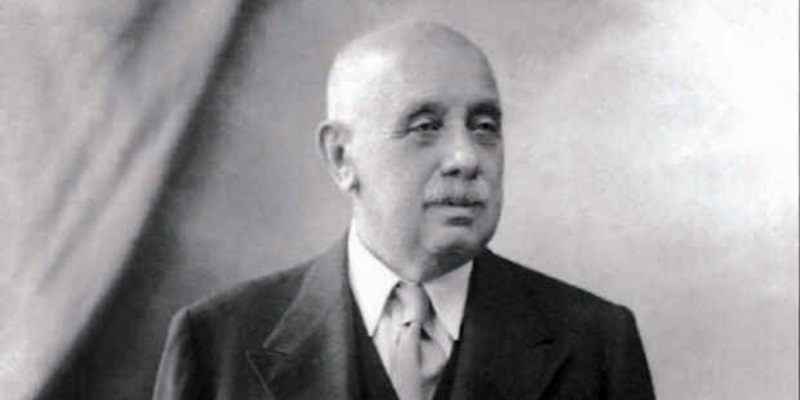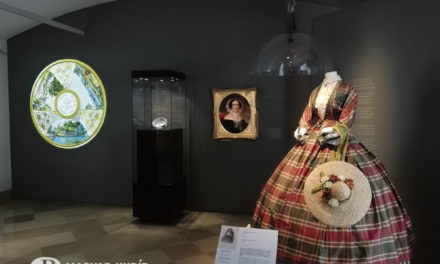He was born into a rich family, but was orphaned at an early age. At the age of fifteen, in addition to high school, he already did an internship in a pharmacy. Throughout his life, he was driven by the question why his parents had to die at a young age from diseases that could have been cured with proper therapy and medicine. One hundred and fifty years ago today, the founder of the Hungarian pharmaceutical industry, Gedeon Richter, was born.
Gedeon Richter was born on September 23, 1872 in Ecséden, Heves County, in a family of landowners and crop merchants. His parents were quite wealthy, since in the 1860s they were able to buy a large estate of more than a thousand square meters in the village, together with a castle. Like most of the Jewish families who arrived, they also tried to adapt to the lifestyle of the historical landed gentry. The family's happiness was shattered by the parents' tragedy. First, shortly after Gideon's birth, his mother died of puerperal fever, and a few months later his father died as well. The one-year-old boy and his two brothers were taken in by his maternal grandparents in Gyöngyös, but the family of one of his maternal cousins also took part in raising the children.
Treatment of deficiency diseases
Gedeon completed his secondary education at the Franciscan high school in Gyöngyös. He was already attracted to pharmacy at a young age. This is evidenced by the fact that, from the age of fifteen, he spent three years as an apprentice in the pharmacy of Nándor Mersits in Gyöngyös. His interest was probably also influenced by the fact that his parents died at a very young age of diseases that could have been cured with proper therapy and medicines.
In 1893, he obtained a pharmacy trainee certificate at the University of Cluj, and two years later a pharmacy diploma at the University of Budapest. After a rural internship, in 1897 he went on a study trip to Western Europe to gain experience in the field of European pharmacy and pharmaceutical production. He worked in German, French, Swiss and English pharmacies. Here he encountered a new treatment method, organotherapy, which gave him hope that
Deficiency diseases of the human body can be cured by administering animal endocrine glands and their active ingredients.
He recognized the importance of the new therapy and made it his life's goal to develop it in Hungary.
Pharmacy in Kőbánya
In 1901, he bought the Sas pharmacy at 105 Üllői út in Budapest, and converted its basement and premises for small-scale pharmaceutical technology work. Here he produced his first organotherapeutic agents. Tonogen Suprenale, a product containing adrenal hormone extract, was marketed in 1902 and is still used in medicine today.
The foundation of the internationally renowned pharmaceutical factory - as the locals called it: the pharmacy factory - was laid with the work in the Sas pharmacy.
Large-scale production began in 1907 in Kőbánya, at 63 Cserkesz Street.
The factory's first big success was Kalmopyrin, patented in 1912, while the disinfectant tablet called Hyperol played a significant role in the First World War. At the outbreak of the war, he had two dozen pharmaceutical patents. Thanks to the experience gained during their development, the various hormone preparations were brought to market in competitive quality at the international level. Among them, the oxytocin-containing Glanduitrin injection used in gynecology, or the insulin discovered in 1923, which was produced in the Cserkesz utca factory as early as 1926, and then soon resolved its continuous production, proved to be of outstanding importance. By the beginning of the Second World War, the factory already had a representative network covering five continents and ten subsidiaries, while it also established commission warehouses in 34 states.
Pál Teleki rejected his request
His dizzying career was interrupted by the Jewish laws. In 1939, he was forced to resign as chairman of the board, the members of the family board were replaced by Christian public figures, who then tried to lobby for the company and its founder. In 1940, the factory founder had a bold idea and petitioned Prime Minister Pál Teleki to be exempted from the restrictive provisions of the Jewish laws, but his request fell on deaf ears. At the beginning of 1942, the authorities also banned him from acting as CEO. From then on, he managed the company illegally from his home.
He could have left for Switzerland in the fall of 1944, but he did not want to leave his beloved factory.
His wife Nina Winkler and himself were hidden by Raoul Wallenberg along with over a thousand other Jews.
lived with relatives for a while , and then at the beginning of December 1944 they moved to the so-called international ghetto, to the corner house at Katona József utca 21, under the diplomatic protection of the neutral Swedish embassy. Then, on December 30, a squad of arrows dragged the residents of the house to the party building at Andrássy út 60 under the pretext of obtaining identification. The group was looted and locked up, then at dawn the next day they were sent towards the Danube with an armed escort, ordering the men to the front and the women to the rear. Tibor Rasztik's research , an eyewitness saw that Gedeon Richter then hugged his wife, said goodbye to her, and stood in front of the line of men. Before departure, everyone was stripped down to their underwear in the ice-cold, freezing weather.
The marching column was stopped at the river, fifty of the leading men, including Richter, were led away and shot into the Danube at today's Széchenyi wharf. His body was never found.
"I did not disappear"
After the Second World War, the rebuilt and nationalized company operated under the name Kőbányai Gyógyszerarugyár. In 1972, on the 100th anniversary of Gedeon Richter's birth, a Richter memorial medal was established and the Sas pharmacy on Üllői út was marked with a commemorative plaque. Today, there is a school in his parents' house in Ecsédi, called Richter Gedeon Primary School.
In 2014, Dávid Spáh made a documentary-feature film entitled Nem válátem about his life, in which the factory founder is played by Péter Rudolf. The artwork here for free.
Featured image source: National Memorial Committee













